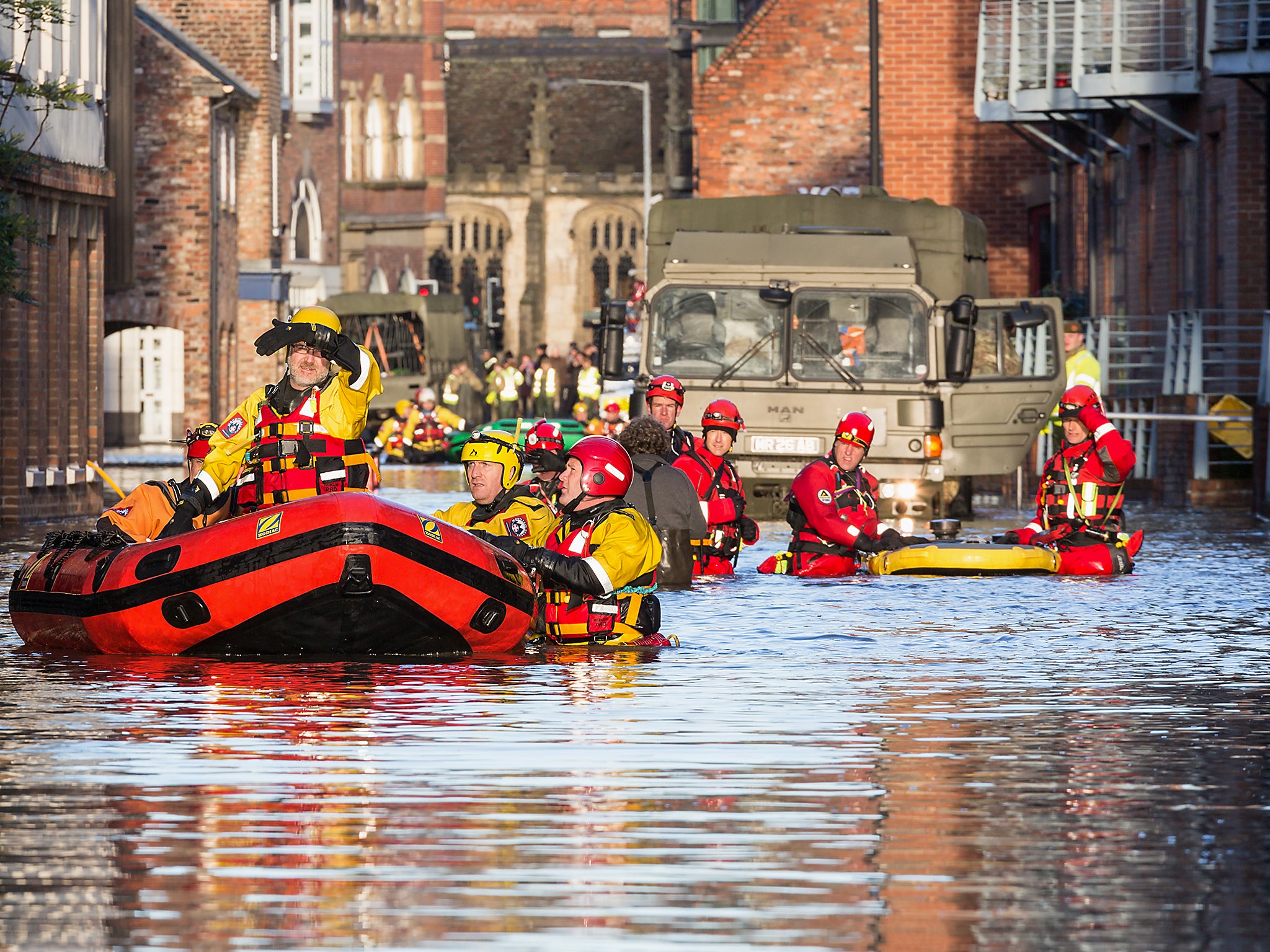Extreme weather has cost Europe more than £330bn and the lives of 85,000 people since the 1980s
‘The scale of future climate change and its impacts will depend on the effectiveness of implementing our global agreements to cut greenhouse gas emissions’

Your support helps us to tell the story
From reproductive rights to climate change to Big Tech, The Independent is on the ground when the story is developing. Whether it's investigating the financials of Elon Musk's pro-Trump PAC or producing our latest documentary, 'The A Word', which shines a light on the American women fighting for reproductive rights, we know how important it is to parse out the facts from the messaging.
At such a critical moment in US history, we need reporters on the ground. Your donation allows us to keep sending journalists to speak to both sides of the story.
The Independent is trusted by Americans across the entire political spectrum. And unlike many other quality news outlets, we choose not to lock Americans out of our reporting and analysis with paywalls. We believe quality journalism should be available to everyone, paid for by those who can afford it.
Your support makes all the difference.Extreme weather cost Europe more than £300bn and ended the lives of 85,000 people over the last three decades – and the problems are getting worse as the world warms, according to a new report by the European Environment Agency (EEA).
The document, called Climate change, impacts and vulnerability in Europe, revealed the cost to the economy had soared by about 80 per cent over the last 30 years.
During the 1980s, the damages averaged about €7.6bn (about £6.5bn) a year, but by the 2000s the figure had risen to €13.7bn, the report said. Overall between 1980 and 2013, the cost was nearly €393bn.
Some 75,000 deaths were attributed to heatwaves, with about 4,400 from floods, about 3,300 from storms and a similar number from droughts, forest fires and cold weather.
One perhaps unexpected effect of global warming has been to make parts of Europe unusually cold. The normally consistent jet stream in the region has slowed down, developing large loops that carry warm air from the south into the Arctic and cold air in the opposite direction – this illustrates why scientists prefer the term climate change instead.
The EEA expressed caution about how much of this death and destruction could be attributed to human-induced climate change.
But it warned the weather was likely to get worse as the global temperature continues on its current trajectory.
How bad the problem gets would be heavily influenced by the action taken to reduce greenhouse gas emissions, Hans Bruyninckx, executive director of the EEA, said.
“Climate change will continue for many decades to come,” he said.
“The scale of future climate change and its impacts will depend on the effectiveness of implementing our global agreements to cut greenhouse gas emissions, but also ensuring that we have the right adaptation strategies and policies in place to reduce the risks from current and projected climate extremes.”
The report stressed that climate change was “continuing globally” with new records set for average temperature and sea level worldwide and the reduction in winter sea ice in the Arctic.
“The observed changes in climate are already having wide-ranging impacts on ecosystems, economic sectors and human health and wellbeing in Europe,” it said.
“Land and sea temperatures are increasing; precipitation patterns are changing, generally making wet regions in Europe wetter, particularly in winter, and dry regions drier, particularly in summer; sea ice extent, glacier volume and snow cover are decreasing; sea levels are rising; and climate-related extremes such as heat waves, heavy precipitation and droughts are increasing in frequency and intensity in many regions.”
The economic cost would “potentially be high, even for modest levels of climate change, and these costs rise significantly for scenarios of greater levels of warming”.
And not only as result of more extreme weather. Climate change is expected to hit parts of the developing world particularly hard and this could have a knock-on effect on Europe because of the impact on food supplies, trade, migration and security, the report said.
“The strongest evidence for Europe’s vulnerability to cross-border impacts are the economic effects seen as a result of climate-related global price volatilities and disruptions to transportation networks,” the report said.
Join our commenting forum
Join thought-provoking conversations, follow other Independent readers and see their replies
Comments